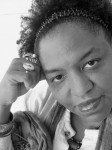
In just a few weeks, I’ll be basking in the glow of one of my favorite writing conferences, The Ocean State Summer Writing Conference at the University of Rhode Island. While I’ll be speaking about the marketing more than craft (How to Build Your Online Platform), I wanted to bring you a taste of the conference in the form of craft–how to write well.
I immediately thought of Crystal Wilkinson, whose workshops and editing I have experienced first hand. Jody Lisberger was right when she told me not to miss Crystal’s class last year. As an author of fiction, Crystal has lots to teach us about great writing that will make your book compelling to readers.
Lisa: Can you suggest 3 rules of writing you would apply across the board
for nonfiction and fiction alike?
Crystal:

1. Write in scenes. No matter what the genre, providing the reader with a narrative arc through sensory language and making something happen is essential to both fiction and nonfiction.
2. Clarity is not negotiable. Take the most direct route from point to point. This does not mean that there can’t be layers or complication or complexity but clarity should be a priority.
3. Revise questioning every word, every sentence.
Lisa: What advice would you give to someone writing anecdotes for a how-to book in order to make the stories–however short–bring the material to life for readers?
Crystal: One simple fix for saggy writing is to go back and take a look at your verbs. Circle the verbs throughout a manuscript and make sure they are vibrant (without overdoing it). This gives great weight to any piece of writing. One thing it does is give the work a sense of a dramatic arc even when something is short.
Lisa: Great advice. One of my pet peeves is using the passive voice (which I just did!). How about someone writing a memoir-what tips should they apply
from the fiction world, particularly novels?
Crystal: I’ll be very specific and say everything. Memoir is essentially a story too and we as humans yearn for story so a successful memoir and a successful novel provide a reader with a good story. Every element novelists use can be applied to the memoir including pacing, characterization, a narrative arc, dramatic weight, etc. All of those things enhance the writer’s ability to deliver a good story whether it is fiction or nonfiction.
Lisa: Any other advice you’d like to pass on?
Crystal: All writers should stop and remind themselves, “I am a writer.” This may sound strange but we all get caught up in our schedules and doing the business of writing and wearing the title writer and no matter what the genre we need to stop and remind ourselves, “I am a writer therefore my butt should be on the seat, my fingers on the keys or the pen. Of course this comes from my own personal experience at this moment but I think it’s advice we can all take.
Have a question for Crystal? Ask below…
 Crystal Wilkinson is the author of Blackberries, Blackberries and Water Street, the latter a long-list finalist for the prestigious Orange Prize and short-listed for a Zora Neal Huston, Richard Wright Foundation Legacy Award. She is the recipient of the Chaffin Award for Appalachian Literature.
Crystal Wilkinson is the author of Blackberries, Blackberries and Water Street, the latter a long-list finalist for the prestigious Orange Prize and short-listed for a Zora Neal Huston, Richard Wright Foundation Legacy Award. She is the recipient of the Chaffin Award for Appalachian Literature.
You can still register for Crystal’s craft session on June 24: for fiction and nonfiction authors on “Point of View: The Eye of I” as well as the whole conference. For a related post, read my interview with Richard Hoffman, another favorite author and teacher of mine who is also presenting. I hope to see you at URI (if you’re coming, let me know so we can catch up).

